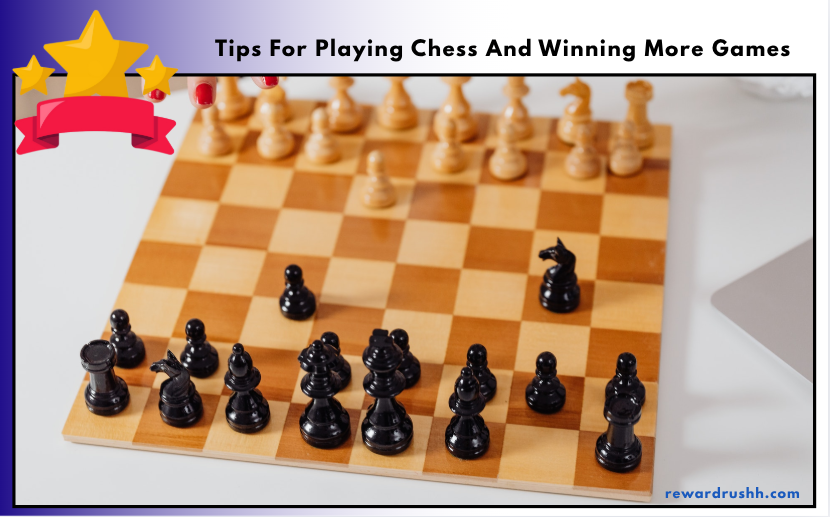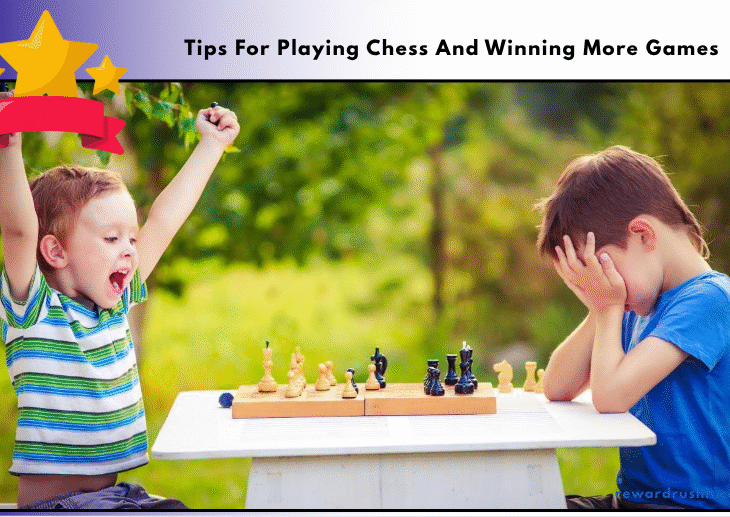Ever feel like you’re stuck in a chess rut, making the same mistakes and never quite breaking through? You’re not alone! Many chess players struggle to improve, but with the right strategies, you can definitely start seeing more wins.
This article will give you practical tips for playing chess and winning more games. We’ll cover everything from opening principles to endgame tactics, so you can level up your game and start checkmating your opponents with confidence. Let’s dive in!
Mastering the Opening: Setting the Stage for Victory
The opening is crucial. It’s where you lay the foundation for the rest of the game.
Control the Center
One of the most fundamental tips for playing chess effectively is to control the center of the board. The central squares (d4, e4, d5, and e5) give your pieces greater mobility and influence.
Pieces controlling the center can easily move to either side of the board. This makes them more versatile and powerful.
Develop Your Pieces Quickly
Don’t waste time moving the same piece multiple times in the opening. Bring your knights and bishops into play early.
Quick development allows you to coordinate your pieces and control more squares. This is a key tip for playing chess and winning more games.
Castle Early
Castling gets your king to safety. It also connects your rooks, bringing them into the game.
Aim to castle early in the game. This is one of the simplest tips for playing chess defensively.
Dominating the Middlegame: Strategy and Tactics
The middlegame is where the real battle begins. Here, you need to combine strategic thinking with tactical calculation.
Plan Your Attacks
Don’t just move pieces aimlessly. Develop a plan based on the position.
Identify your opponent’s weaknesses and try to exploit them. This is a key tip for playing chess and winning more games.
Calculate Variations
Chess is a game of calculation. Before making a move, think about the possible responses and their consequences.
Try to calculate a few moves ahead. This will help you avoid blunders and find tactical opportunities.
Piece Coordination is Key
Your pieces should work together harmoniously. Avoid having pieces that are isolated or undefended.
Coordinate your attacks to maximize their effectiveness. This is a valuable tip for playing chess.
Understand Pawn Structures
Pawn structures influence the entire game. Learn to recognize different pawn formations and their characteristics.
For example, an isolated pawn can be a weakness, while a passed pawn can be a powerful attacking tool.
Tips For Playing Chess And Winning More Games

The endgame is often a test of precision and patience. Even a small advantage can be decisive.
Activate Your King
In the endgame, your king becomes a powerful attacking piece. Bring it into play and use it to support your pawns.
A well-placed king can be a game-changer. This is one of the most important tips for playing chess in the endgame.
Promote Your Pawns
The ultimate goal in the endgame is to promote a pawn to a queen. This usually leads to a quick victory.
Focus on creating passed pawns and pushing them towards promotion.
Know Basic Checkmates
Learn the basic checkmates, such as king and queen vs. king, and king and rook vs. king. These are essential skills for any chess player.
Practicing these checkmates will save you time and ensure you don’t draw a winning position.
Essential Tactical Motifs: Sharpen Your Vision
Tactical motifs are patterns that occur frequently in chess games. Recognizing these patterns can help you find winning combinations.
Forks
A fork is when a piece attacks two or more of your opponent’s pieces simultaneously. This is a powerful tactic that can win material.
Knights are particularly good at forking.
Pins
A pin occurs when a piece cannot move without exposing a more valuable piece behind it. Pins can restrict your opponent’s mobility and create attacking opportunities.
Skewers
A skewer is similar to a pin, but the more valuable piece is in front. When the more valuable piece moves, the piece behind it is exposed.
Discovered Attacks
A discovered attack occurs when you move a piece, revealing an attack by another piece. This can create unexpected threats and win material.
Sacrifices
Sometimes, sacrificing a piece can lead to a winning attack. Look for opportunities to sacrifice material for positional or tactical advantages.
Practical Tips for Improvement: Consistent Progress
Improving at chess requires consistent effort and a structured approach.
Analyze Your Games
After each game, take the time to analyze your moves. Identify your mistakes and learn from them.
Use a chess engine to help you analyze your games. This is a valuable tip for playing chess and winning more games.
Solve Puzzles Regularly
Solving chess puzzles is a great way to improve your tactical vision. Set aside some time each day to solve puzzles.
There are many websites and apps that offer chess puzzles.
Study Endgames
Endgame knowledge is crucial for converting advantages into wins. Study basic endgame positions and techniques.
Play Regularly
The more you play, the better you will become. Play regularly against opponents of different skill levels.
Learn from Grandmasters
Study the games of grandmasters to learn their strategies and tactics. Pay attention to their opening choices, middlegame plans, and endgame techniques.
This is a great tip for playing chess at a higher level.
Use Chess Software
Chess software can be a valuable tool for improving your game. Use it to analyze your games, solve puzzles, and study openings.
Psychological Strategies: Mind Over Matter
Chess is not just a game of skill; it’s also a mental battle. Here are some psychological tips for playing chess:
Stay Calm
Don’t get flustered when you make a mistake. Stay calm and focus on the next move.
Be Confident
Believe in your abilities. Confidence can make a big difference in your performance.
Be Patient
Chess is a game of patience. Don’t rush your moves. Take your time to calculate and think carefully.
Respect Your Opponent
Even if you think you are better than your opponent, don’t underestimate them. Respect their abilities and play your best.
Learn to Handle Pressure
Playing under pressure can be challenging. Practice playing in tournaments or timed games to get used to the pressure.
Opening Repertoire: Build a Solid Foundation
Having a solid opening repertoire is essential for consistent results.
Choose Openings That Suit Your Style
Select openings that match your playing style. If you are an aggressive player, choose sharp, tactical openings. If you are a positional player, choose solid, strategic openings.
Study Your Openings in Depth
Learn the main lines and sidelines of your chosen openings. Understand the typical plans and ideas for both sides.
Practice Your Openings Regularly
Practice your openings against different opponents to gain experience and refine your understanding.
Be Prepared to Transpose
Be prepared to transpose into different openings if your opponent deviates from your expected lines.
Physical Well-being: A Healthy Mind in a Healthy Body
Your physical well-being can also affect your chess performance.
Get Enough Sleep
Lack of sleep can impair your concentration and decision-making abilities. Aim for 7-8 hours of sleep per night.
Eat a Healthy Diet
A healthy diet provides your brain with the nutrients it needs to function optimally. Avoid processed foods and sugary drinks.
Exercise Regularly
Exercise improves blood flow to the brain and can enhance your cognitive abilities.
Take Breaks
During long games or study sessions, take regular breaks to stretch your legs and clear your head.
Conclusion
Improving your chess game takes time and effort, but it’s definitely achievable. By focusing on the opening, middlegame, and endgame, mastering tactical motifs, and following practical tips for playing chess, you can steadily improve your skills. Remember to analyze your games, solve puzzles, and study the classics. And don’t forget the importance of psychological strategies and physical well-being.
What are your favorite chess strategies or tips? Share your experiences in the comments below!
FAQ Section
Q: What’s the single most important tip for improving my chess game?
A: Analyzing your games! Identifying your mistakes is crucial for learning and avoiding them in the future. Use a chess engine to help, and focus on understanding why you made certain moves.
Q: How much time should I spend studying chess each day?
A: It depends on your goals and availability. Even 30 minutes of focused study is better than nothing. Consistency is key. Try to set aside a specific time each day for chess study.
Q: What are some good resources for learning chess online?
A: There are many excellent resources available. Lichess.org is a great free platform for playing, analyzing, and learning chess. Chess.com offers a wealth of lessons, puzzles, and articles. YouTube channels like GothamChess and ChessNetwork also provide valuable insights and instruction.










